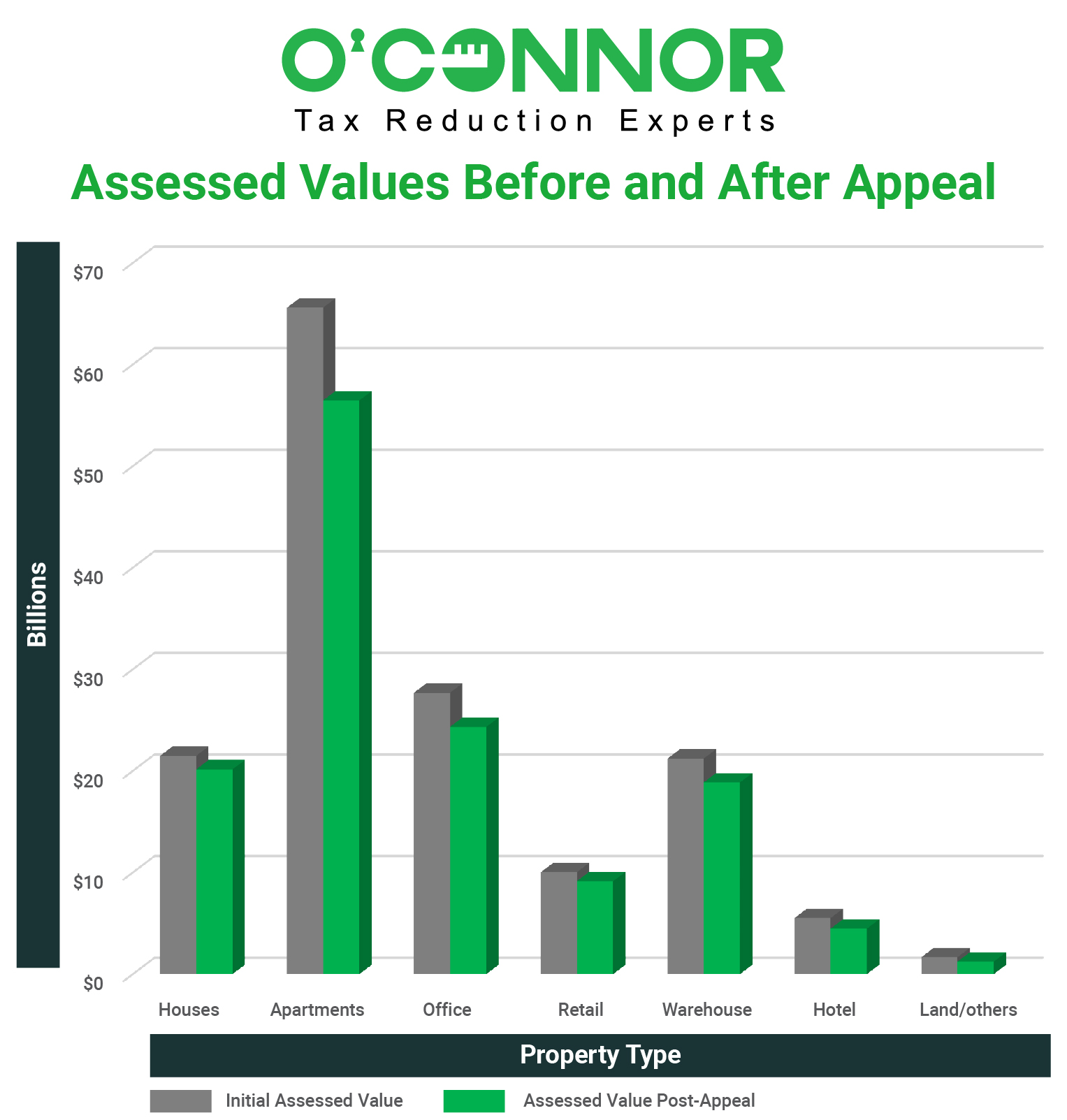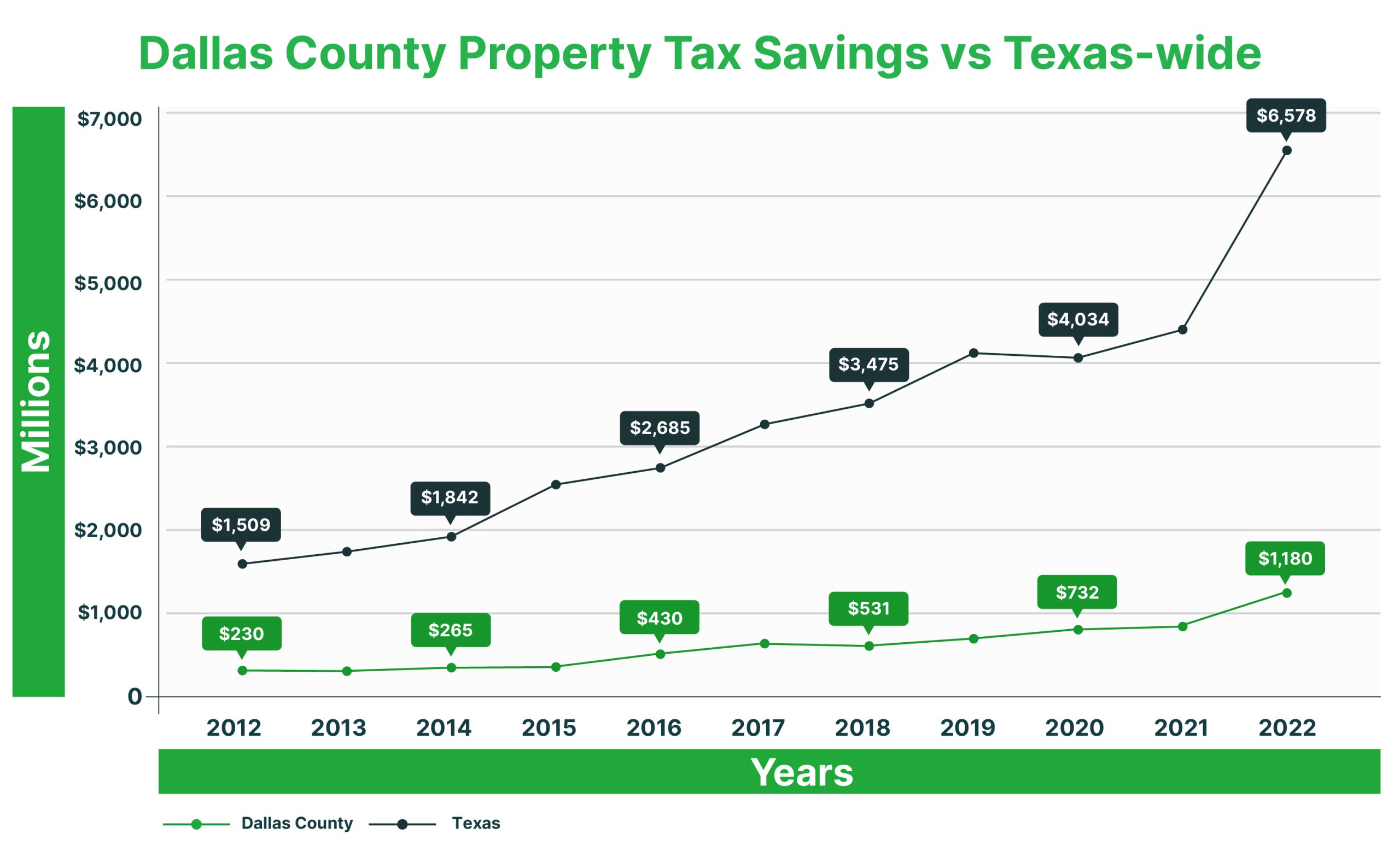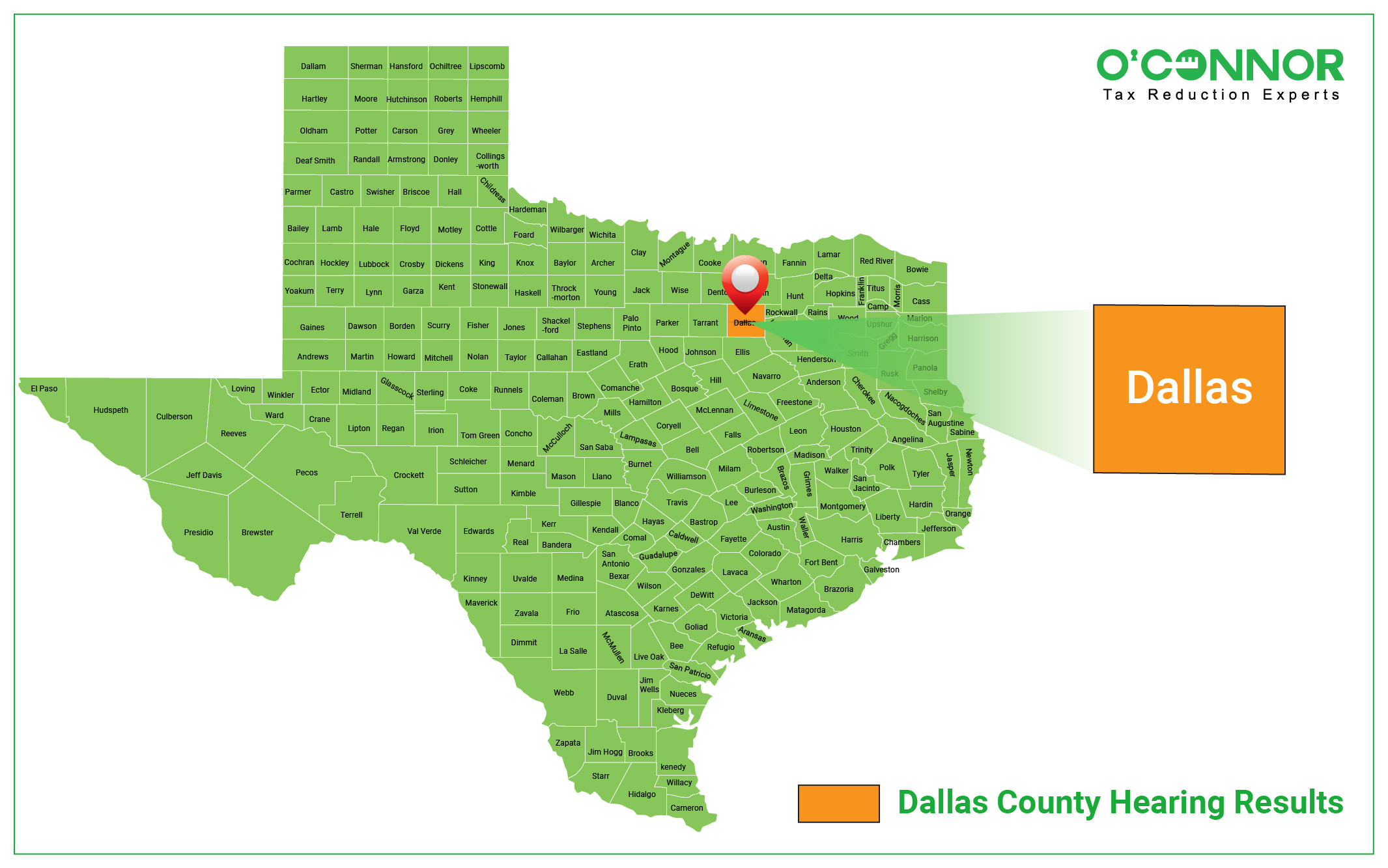Dallas County Property Tax: The Ultimate Guide For Smart Homeowners
When it comes to Dallas County property tax, you’re not just dealing with numbers – you’re managing your biggest investment. Whether you’re a seasoned homeowner or a first-time buyer, understanding property taxes is crucial. It’s like the unsung villain in your financial story, but with the right knowledge, you can turn it into an ally. So, buckle up because we’re about to break down everything you need to know about property taxes in Dallas County, from A to Z.
Property taxes might sound like a boring topic, but trust me, they’re a big deal. If you ignore them, you could end up with some nasty surprises, like penalties or even losing your home. On the flip side, if you play your cards right, you can save money and keep your finances in check. Dallas County has its own set of rules, so let’s dive deep and make sure you’re armed with all the info you need.
Now, I get it – taxes can feel overwhelming. But don’t worry, we’ll break it down step by step. By the end of this guide, you’ll be a pro at navigating Dallas County property tax. So grab a coffee, get comfy, and let’s get started. Your wallet will thank you later.
- Olympics Powerhouse In Womens Gymnastics Unveiling The Titans Of Grace And Strength
- Nc Dmv Permit Renewal Your Ultimate Guide To A Hasslefree Process
Understanding Dallas County Property Tax: What You Need to Know
First things first, let’s clarify what Dallas County property tax actually is. Simply put, it’s a tax levied on real estate properties within the county. This includes residential homes, commercial buildings, and vacant land. The tax is calculated based on the assessed value of your property, and the funds generated go toward essential services like schools, public safety, and infrastructure. It’s like paying for the stuff that keeps your community running smoothly.
But here’s the kicker – property taxes aren’t fixed. They can fluctuate based on factors like market conditions, government budgets, and changes in property values. That’s why it’s important to stay informed and understand how the system works. In Dallas County, the tax rates are determined by local taxing authorities, and the process involves several steps, from appraisal to collection.
How Dallas County Property Tax is Calculated
Now, let’s talk about the nitty-gritty of how Dallas County calculates property taxes. It all starts with the appraisal process. The Dallas Central Appraisal District (DCAD) assesses the value of your property each year. This value is then multiplied by the tax rate set by various taxing entities, such as the city, school district, and county. The result? Your annual property tax bill.
- Donald Swayze The Untold Story Of A Rising Star
- Guppy On Icarly The Ultimate Guide To The Iconic Fish
Here’s a simple formula to help you understand:
- Appraised Value × Tax Rate = Property Tax Amount
For example, if your home is appraised at $300,000 and the combined tax rate is 2%, your property tax would be $6,000. Easy, right? Well, sort of. There are a few more factors to consider, like exemptions and protests, which we’ll cover later. But for now, just remember that the appraised value and tax rate are the two main components that determine your bill.
Who Determines Dallas County Property Tax Rates?
Property tax rates in Dallas County aren’t set in stone – they’re determined annually by local taxing authorities. These include the Dallas County government, city councils, school districts, and special districts. Each entity sets its own tax rate based on its budget needs, and the rates are combined to create the total tax rate for your property.
For instance, the Dallas Independent School District (DISD) might set a tax rate of 1.4%, while the city of Dallas sets a rate of 0.6%. Add in the county and other districts, and you get the final rate applied to your property. It’s like a big puzzle where each piece represents a different entity’s contribution to your tax bill.
How Often Do Property Tax Rates Change?
Property tax rates can change every year, depending on various factors. One major factor is the budget requirements of local governments and districts. If they need more revenue, they might increase the tax rate. Conversely, if they have surplus funds, they might lower the rate. Another factor is the overall property values in the county. If property values rise significantly, the tax rate might decrease to keep the revenue consistent.
It’s worth noting that tax rates in Dallas County have been on the rise in recent years, partly due to population growth and increased demand for public services. So, it’s a good idea to stay updated on any changes that might affect your wallet.
The Role of Dallas Central Appraisal District (DCAD)
The Dallas Central Appraisal District (DCAD) plays a crucial role in the property tax process. They’re responsible for appraising all properties within Dallas County and ensuring that the values are accurate and fair. DCAD uses a variety of methods to determine property values, including market analysis, cost approach, and income approach.
Here’s how it works: DCAD sends out appraisal notices to property owners each year, informing them of their property’s assessed value. If you disagree with the appraisal, you have the right to protest and request a review. This is an important step if you believe your property has been overvalued, as it can directly impact your tax bill.
How to Protest Your Dallas County Property Tax Appraisal
If you think your property has been appraised too high, you can file a protest with DCAD. Here’s how to do it:
- Review your appraisal notice carefully and gather evidence to support your case, such as recent sales of similar properties in your area.
- File a protest application with DCAD by the deadline, which is usually May 31st.
- Attend a hearing with the Appraisal Review Board (ARB) to present your case. Be prepared to explain why you believe the appraisal is incorrect.
- If the ARB agrees with your argument, they may adjust your property’s assessed value, resulting in a lower tax bill.
Protesting your appraisal might seem intimidating, but it’s a valuable right that can save you money. Plus, DCAD provides resources and guidance to help you through the process.
Common Exemptions for Dallas County Property Tax
Did you know that you might qualify for exemptions that can reduce your Dallas County property tax bill? Exemptions are reductions in the taxable value of your property, and they’re designed to help certain groups of homeowners. Some common exemptions include:
- Homestead Exemption: Available to homeowners who use their property as their primary residence. This exemption removes a portion of your home’s value from taxation.
- Over 65 Exemption: If you’re 65 or older, you can qualify for an additional exemption that freezes your tax bill at the current level.
- Disabled Veterans Exemption: Eligible veterans can receive significant reductions in their property tax burden.
- Energy Efficiency Exemption: If your home has energy-efficient features, you might qualify for a reduction in your taxable value.
To apply for an exemption, you’ll need to complete the appropriate paperwork and submit it to DCAD. Make sure to meet the deadlines, as missing them could cost you valuable savings.
How to Apply for Property Tax Exemptions
Applying for exemptions is a straightforward process, but it requires attention to detail. Here’s what you need to do:
- Visit the DCAD website and download the application forms for the exemptions you qualify for.
- Gather any required documentation, such as proof of age, disability status, or energy efficiency certifications.
- Submit your completed application and supporting documents by the deadline, which is typically before the end of the year.
- Wait for DCAD to review your application and notify you of the result. If approved, your exemption will be reflected in your next tax bill.
Remember, exemptions can save you thousands of dollars over time, so it’s worth taking the time to apply if you qualify.
Payment Options for Dallas County Property Tax
When it comes to paying your Dallas County property tax, you have several options. The most common method is paying in full by the deadline, which is usually January 31st of each year. However, if you need more flexibility, there are alternative payment plans available.
One option is to set up a payment plan with the county treasurer’s office. This allows you to pay your taxes in installments over a specified period. Another option is to escrow your property taxes through your mortgage lender. In this case, the lender collects a portion of your taxes with each monthly mortgage payment and pays the bill on your behalf when it’s due.
What Happens If You Don’t Pay Your Property Taxes?
Failing to pay your Dallas County property tax can have serious consequences. If you miss the deadline, you’ll incur penalties and interest charges, which can add up quickly. If the taxes remain unpaid for an extended period, the county may place a lien on your property or even initiate foreclosure proceedings. It’s a situation you definitely want to avoid.
That’s why it’s important to plan ahead and make sure you have the funds available to pay your taxes on time. If you’re struggling financially, reach out to the county treasurer’s office to discuss your options. They may be able to offer assistance or arrange a payment plan to help you get back on track.
Resources for Dallas County Property Tax
If you’re looking for more information about Dallas County property tax, there are plenty of resources available to help you. The Dallas Central Appraisal District (DCAD) website is a great place to start. It provides detailed information on appraisals, exemptions, protests, and payment options. You can also find contact information for DCAD staff who can assist you with any questions or concerns.
Another valuable resource is the Dallas County Treasurer’s Office. They handle the collection of property taxes and can provide guidance on payment plans and delinquent taxes. Additionally, local tax professionals and real estate agents can offer insights and advice based on their experience working with Dallas County homeowners.
Tips for Managing Dallas County Property Tax
Here are a few tips to help you manage your Dallas County property tax effectively:
- Stay Informed: Keep up with changes in tax rates, exemptions, and deadlines by regularly checking the DCAD and county treasurer’s websites.
- Protest If Necessary: Don’t hesitate to file a protest if you believe your property has been overvalued. It’s your right, and it could save you money.
- Apply for Exemptions: Make sure you’re taking advantage of all the exemptions you qualify for. Every little bit helps.
- Plan Ahead: Budget for your property taxes and explore payment options that work for your financial situation.
By following these tips, you’ll be better equipped to handle Dallas County property tax and avoid any unpleasant surprises.
Conclusion: Take Control of Your Dallas County Property Tax
Now that you’ve got the lowdown on Dallas County property tax, it’s time to take action. Whether you’re protesting an appraisal, applying for exemptions, or setting up a payment plan, the key is to stay informed and proactive. Property taxes might not be the most exciting topic, but they’re an important part of homeownership, and understanding them can save you money and headaches in the long run.
So, what’s next? Leave a comment below and let me know if you have any questions or tips of your own. And don’t forget to share this guide with other homeowners in Dallas County who could benefit from the info. Together, we can make property taxes a little less daunting and a lot more manageable.
Table of Contents
- Understanding Dallas County Property Tax
- How Dallas County Property Tax is Calculated
- Who Determines Dallas County Property Tax Rates?
- The Role of Dallas Central Appraisal District (DCAD)
- How to Protest Your Dallas County Property Tax Appraisal
- Common Exemptions for Dallas County Property Tax
- How to Apply for Property Tax Exemptions
- Payment Options for Dallas County Property Tax
- What Happens If You Don’t Pay Your Property Taxes?
- Resources for Dallas County Property Tax
- Traditional Economy Advantages Why It Still Matters In Modern Times
- Eddie In 911 The Ultimate Guide To The Iconic Character And His Role

Dallas County Property Tax Dallas County

Property Tax Protest Dallas County

Dallas County Property Tax Dallas County